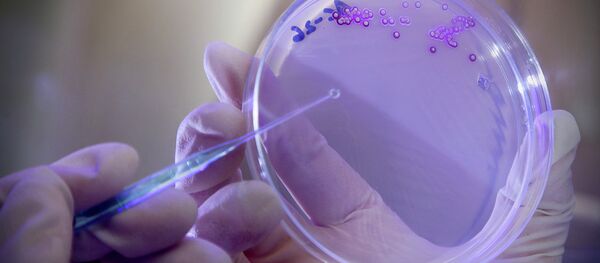According to a recent study published in the journal Nature, MRSA has a natural competitor, which also lives in the noses of some 9% of humanity, called Staphylococcus lugdunensis. This bacterium implements an unusual weapon to suppress unwanted neighbors: it produces an antibiotic, a substance researchers have dubbed lugdunin.
Lugdunin is a previously unknown antibiotic powerful enough to eradicate MRSA bacteria, even when significantly outnumbered. Lugdunin can act against other pathogens currently resistant to various antibiotics, such as strains of Enterococcus, meningitis, and bronchitis-causing Streptococcus pneumonia bacteria, according to research.
"It's really the first human-associated bacterium where the whole species is able to produce such an antibiotic," said Bernhard Krismer, a University of Tübingen co-author of the study, in Germany.
During the study, researchers infected the skin of mice with S. aureus. An ointment containing lugdunin killed the infection both on the surface and in deeper layers of the skin, indicating promise for the medicine.
Lugdunin works in a significantly different way from most known antibiotics. Previously-known antibiotics are small molecules that attack bacterial enzymes, the proteins that regulate chemical reactions inside the cell. Lugdunin is a much larger molecule that attacks the bacterial membrane in a way that is not fully understood. The research team presumes that this mechanism may be the reason that S. aureus is prevented from developing a resistance, as evidenced by a 30-day test-tube trial.
Understanding this novel mechanism is a vital step before lugdunin can become an actual medicine. Scientists suggest that lugdunin-producing Staphylococcus could be administered in the form of a nasal spray to humans who don't naturally carry the bacteria, as a preventive measure.
Although additional study is pending, researchers reportedly are in negotiations with various pharmaceutical companies.




